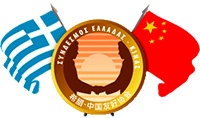“China will buy part of the Greek debt in the next issue of bonds,” Chinese Premier Li Keqiang stated during his three-day visit to Greece, painting a big smile on the face of the Greek Premier standing next to him during their joint press conference in Maximos Mansion.
This unexpected and supportive statement, coming from the world’s second biggest economy whose growth gallops at around 7.5% each year, definitely means a lot for Greece. It’s a country which has been going through a horrendous crisis since 2008, leading the list of countries with the highest unemployment rates in Europe, according to Eurostat’s recent report.
Timing and…bonding
Besides being an extremely tough situation to get through, the financial crisis that first hit Greece in 2008 can also be considered a perfect opportunity for its government to start looking for new allies; this time, in the East. After all, Greece’s strategic location – the Southeastern tip of Europe, at the crossroads of Europe, Asia and Africa, close to Suez – has always been enviable enough to cause numerous historical clashes on this part of the map.
But this is not the era of clashes – it’s the era of business and investments. It’s the era when countries are bonding through trade despite their apparent differences, or becoming enemies despite the common backgrounds, depending on the financial matters on the table between them.
It’s the era in which China is building its modern Silk Road, with many crisis-weary European countries reaching for a piece of the pie. And Li Keqiang’s recent visit to Greece, a country whose ship-owners have been the largest investors in new builds in the past few years – having invested 51 billion USD since 2010 – showed that Greece is set to get a big one.
Greek ship owners control 15.56% of the capacity of the world fleet, carrying 60% of China’s imported oil and more than half of its total outbound: Greek Shipping Minister Miltiades Varvitsiotis
As Greek Shipping Minister Miltiades Varvitsiotis stated during his speech at the Sino-Hellenic Forum, held on the occasion of Li Keqiang’s recent visit in Athens, “Greek ship owners control 3,901 ships, corresponding to 15.56% of the capacity of the world fleet, carrying 60% of China’s imported oil and more than half of its total outbound”.
Deals worth €6.5 billion were signed during Li Keqiang’s three-day visit in Greece, with the Chinese Premier stressing his expectation that the Greek port of Piraeus will become the “most competitive port in the world as China’s main gateway to Europe”. He also vowed to expand his country’s presence there in the years ahead.
So far the interest of China’s state-run shipping company, Cosco for the Piraeus Port Authority, is well known and growing, but China – which has already submitted a bid to buy a majority stake in Piraeus – is also eyeing the construction of an airport costing more than 800 million euros in Kasteli, Crete, and the main airport in Athens when the government puts it on sale later this year.
Piraeus can be the world’s most competitive port as China’s main gateway to Europe: Li Keqiang
Further, as Development Minister Nikos Dendias noted, the two sides also discussed a high-speed rail project, which the Chinese want to use as a part of their modern and money-making “Silk Way” to Europe; in addition they’re looking at Greece’s promising energy sector, with Chinese investors having expressed interest in the country’s power grid operator (Independent Power Transmission Operator), while some Chinese wind-farms in Greece are already producing good amounts of energy to sell.
Overcoming a crisis
All of the above sound promising, especially for a Greek governing party that saw some drop in its popularity in the recent European elections, but can they really be called, as the Greek Premier does, a “success story”? China’s drive towards aiding Greece has two major obstacles to overcome before it can reach that point.
One is rooted in the EU’s very policies, which sometimes pose barriers on Greece strengthening its relations with the East, as proven by the fact that the European Commission is procrastinating on the approval of a 230 million-euro further investment in Cosco in Piraeus Port. The second one comes from the fact that many Greeks still seem skeptical on whether Greece’s finances will actually change for the better any time soon, despite the deals signed with China.
Although they welcome foreign investments, believing it’s the only way to gain back what they’ve lost over the years of recession and austerity measures, they express their fear of slowly transforming into Southern European cheap labor along with the Italians, Portuguese and the Spanish.
To them, the only way for an actual success story to happen, sliding over the danger of becoming a country of inequalities such as post-crisis Brazil, is for them to end up having enough to spend themselves, in order to keep their own country’s economy stable for the next crisis to come. And for that to happen, they must first trust the East and believe in its projections – a difficult task after the formerly trustworthy West let them down. COSCO may have shown some good signs so far as the biggest modern employer in Piraeus, but Chinese investors need to keep it up, or even improve their already friendly image towards Greece.
After all, the higher the support Greeks show on investments, the better the outcome will be for both partners – China and Greece – economically and socially speaking. And Greece, a country that is finally turning to its Eastern potential allies instead of the Western ones which proved damaging, literally cannot afford to make the same mistakes again.
